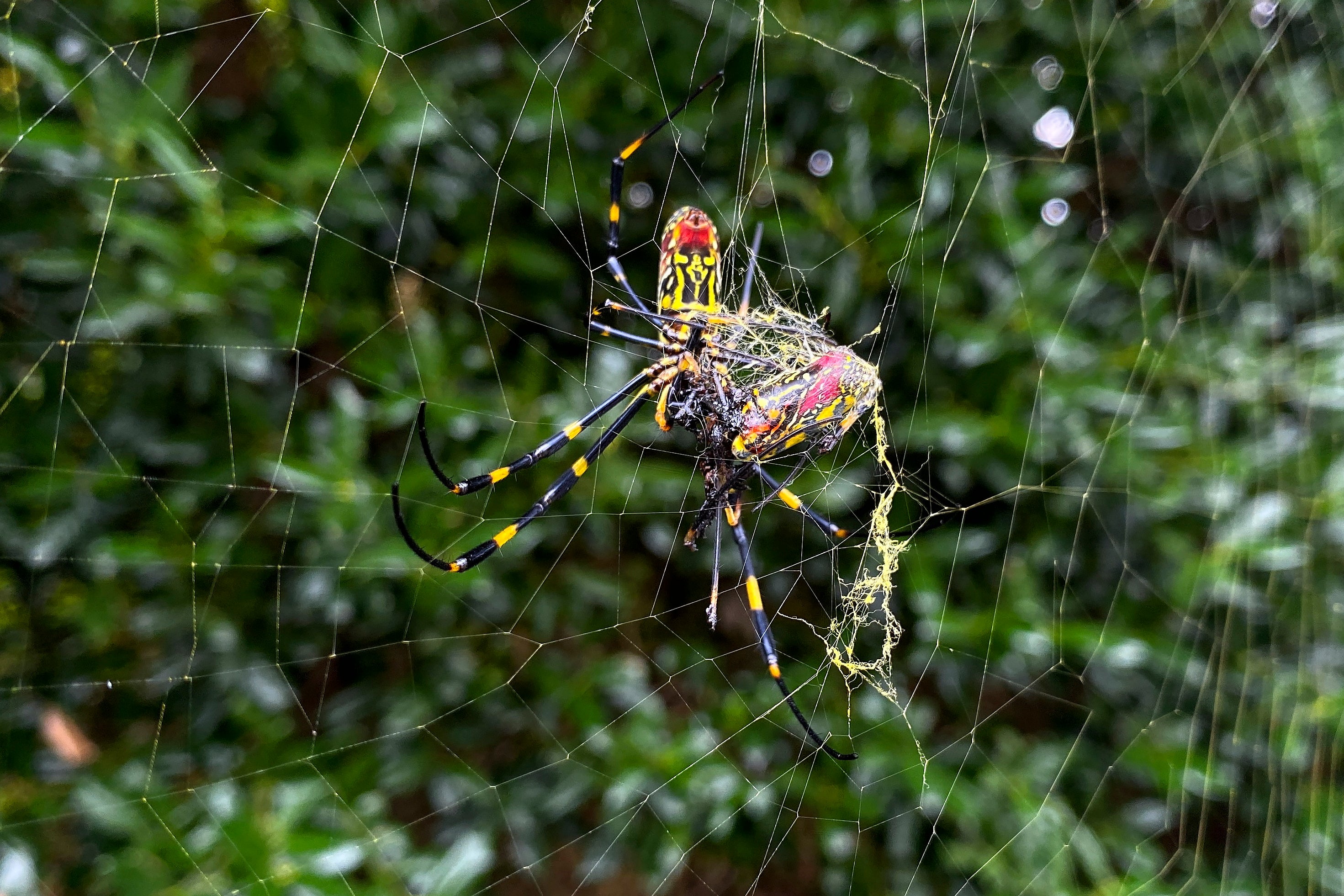
A giant spider from East Asia that has invaded Georgia may soon dominate the entire US east coast.
The Joro spider – with legs spanning three inches, about the diameter of a soup can – has unnerved some homeowners in Georgia who have encountered its huge, golden webs.
In addition to the spiders’ startling size – female members of the species are as big or bigger than the Carolina wolf spider, the largest native spider in the US – they’re also eye-catching for their yellow and blue coloration.
Native to Korea, China, Taiwan and Japan, the spiders probably arrived in Georgia sometime in 2013 or 2014, which is when scientists first began noting sightings.
A new study in Physiological Entomology theorised that the Joro is likely to dominate the east coast thanks to some evolutionary traits making them both hearty and mobile.
According to researchers, the spiders probably hitched a ride to Georgia on a cargo ship. Without natural enemies, they managed to reproduce rapidly, eventually blanketing the state in golden webs and freaking out Georgians.
Luckily for them, the spiders are largely harmless to humans and most pets. Scientists say the creature’s bite feels like a tiny pinch, and that while they are venomous, it would pose no threat to a human who gets bitten.

Researchers believe the spider is likely to spread throughout the east coast and the south, as it has shown some resilience to cold temperatures and has the ability to travel by using its webs like a balloon or a parachute to sail on the wind. Using this method the spiders can actually travel between 50 to 100 miles.
So yes, the three-inch mega spider can fly.
They also tend to live at the edges of woods or around homes, and reportedly tend to live in groups, which should bring comfort to any east coast homeowner.
Despite their ability to windsail around the country, researchers believe that humans will inadvertently continue to spread the spiders throughout the eastern part of the US.
While the spiders bring a creep factor with them, they also are master hunters of mosquitos and brown stink bugs, which destroy crops.
“This is wonderful. This is exciting. Spiders are our friends,” Nancy Hinkle, an entomologist at the University of Georgia – and confirmed not a spider – told the Associated Press. “They are out there catching all the pests we don’t want around our home.”







